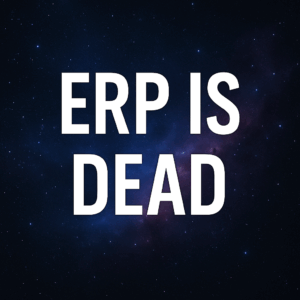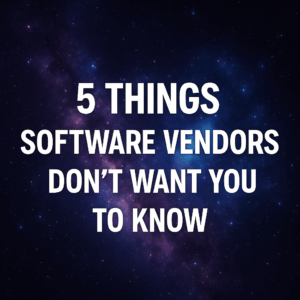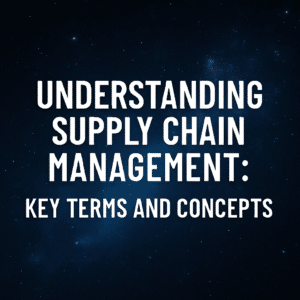The enterprise resource planning (ERP) market is rich with options, offering a multitude of systems to choose from. Selecting the right ERP system is crucial for organizations aiming to streamline operations, improve efficiency, and drive digital transformation. With 2025 approaching, it’s time to explore the top ERP systems that are making waves in the industry.
This year’s ranking of the top 10 ERP systems reflects significant shifts influenced by changes in evaluation methodology, market trends, and technological advancements. The methodology now emphasizes not only quantitative factors like average cost and functionality but also intangibles such as implementation timeframe, risk, overall implementation success, and the supporting ecosystem. Additionally, insights from various independent sources have been consolidated to provide a weighted ranking that offers a comprehensive view of each system’s strengths and weaknesses.
Table of Contents
Toggle1. Microsoft Dynamics 365 Finance and Operations
Overview: Microsoft Dynamics 365 Finance and Operations (F&O) retains its top spot due to its balance of comprehensive features and flexibility. It caters to both mid-market and large enterprises, offering a familiar Microsoft interface and seamless integration with other Microsoft products like Office 365 and Power BI.
Strengths:
- Flexibility and Scalability: Suitable for a wide range of industries and business sizes.
- User-Friendly Interface: Familiar look and feel for users accustomed to Microsoft products.
- Strong Ecosystem: Extensive network of third-party developers and industry-specific solutions.
Challenges:
- Complex Implementation: The system’s breadth can lead to longer implementation times.
- Variable Partner Quality: The vast ecosystem includes partners of varying expertise, necessitating careful selection.
2. Oracle Fusion Cloud ERP
Overview: Oracle Fusion Cloud ERP is a robust solution designed for large organizations seeking scalability and flexibility. It integrates various Oracle applications under one umbrella, providing a comprehensive suite of tools.
Strengths:
- Broad Functionality: Extensive features catering to diverse business needs.
- Flexibility: Open architecture allows for customization and integration with third-party systems.
- Strong Ecosystem: A wide range of partners and resources for support.
Challenges:
- Complexity: Implementation can be complicated due to multiple integrated applications.
- Cost and Time: May require significant investment in resources for successful deployment.
3. SAP S/4HANA
Overview: SAP S/4HANA is renowned for its extensive market share among large global enterprises. It offers a comprehensive solution capable of handling complex business processes across various industries.
Strengths:
- Comprehensive Features: Massive breadth of functionality for end-to-end business management.
- Global Support: Ideal for multinational organizations requiring integrated operations.
- Strong Ecosystem: Extensive network of partners and consultants.
Challenges:
- Complex Implementations: High risk, cost, and resource requirements.
- User Experience: User interface may not be as intuitive as other modern systems.
- Overkill for Some Industries: May be too complex for smaller or less diversified companies.
4. Infor CloudSuite
Overview: Infor CloudSuite is a solid alternative to the major tier-one providers, especially for organizations in manufacturing, distribution, and healthcare. It offers industry-specific solutions with flexibility in deployment.
Strengths:
- Industry Focused: Tailored solutions for specific industries.
- Flexible Deployment: Options for cloud, on-premise, or hybrid models.
- Cost-Effective: Competitive pricing compared to larger ERP systems.
Challenges:
- Integration Complexity: Multiple solutions within the suite may require integration efforts.
- Limited Industry Coverage: May not be suitable for organizations outside its key industries.
5. Oracle NetSuite
Overview: Oracle NetSuite is a pioneer in cloud ERP solutions, targeting small to mid-market companies. It offers a comprehensive suite that is relatively easy to implement and use.
Strengths:
- Cloud Maturity: One of the first ERP systems built for the cloud.
- Ease of Implementation: Streamlined deployment processes.
- Innovative Features: Investment in AI and analytics for enhanced capabilities.
Challenges:
- Standardization: Less flexibility due to its SaaS nature.
- Scalability Limits: May not meet the needs of rapidly growing or large enterprises.
- Implementation Expectations: Companies may underestimate the effort required for successful adoption.
6. Epicor Kinetic
Overview: Epicor Kinetic is tailored for mid-market manufacturing and distribution companies. It combines modern technology with industry-specific functionality.
Strengths:
- Industry Expertise: Deep functionality for manufacturing and distribution.
- User Experience: Modern and intuitive user interface.
- Flexible Deployment: Options for cloud, on-premise, or hybrid setups.
Challenges:
- Ecosystem Limitations: Smaller network of partners compared to larger ERP providers.
- Fit for Size: May be too complex for very small businesses and not robust enough for very large enterprises.
7. Workday and Salesforce Partnership
Overview: The collaboration between Workday and Salesforce brings together HR, financial management, and CRM capabilities, offering a more complete ERP solution.
Strengths:
- Best-of-Breed Approach: Combines leading solutions in HR and CRM.
- Cloud-Native: Both systems are built for the cloud, offering modern capabilities.
- Innovation: Access to advanced technologies and continuous updates.
Challenges:
- Multiple Systems: Integration complexity between Workday and Salesforce.
- Cost and Complexity: Managing two enterprise systems can increase overhead.
8. IFS
Overview: IFS specializes in solutions for asset-intensive industries such as aerospace, defense, energy, and construction. It offers strong project and asset management capabilities.
Strengths:
- Industry Focus: Tailored functionality for specific sectors.
- User-Friendly Interface: Modern and intuitive design.
- Flexible Deployment: Offers cloud, on-premise, and hybrid options.
Challenges:
- Limited Industry Scope: Not suitable for all industries.
- Ecosystem Size: Smaller partner network compared to larger ERP vendors.
9. Acumatica
Overview: Acumatica is a cloud-based ERP solution ideal for small to mid-sized businesses. It offers a modular approach, allowing companies to implement what they need.
Strengths:
- Cloud-Native: Built specifically for the cloud environment.
- Flexibility: Modular and customizable to fit various business needs.
- Cost-Effective: Competitive pricing for smaller organizations.
Challenges:
- Scalability: May not support the needs of rapidly growing companies.
- Ecosystem Limitations: Fewer partners and resources compared to larger ERP systems.
10. Odoo
Overview: Odoo is an open-source ERP platform that is highly modular and customizable, making it a good fit for small businesses and startups.
Strengths:
- Modularity: Ability to implement only the modules required.
- Cost-Effective: Open-source model can reduce licensing costs.
- Community Support: Active developer community contributes to enhancements.
Challenges:
- Configuration Effort: May require significant setup and customization.
- Scalability Issues: Not ideal for larger enterprises with complex needs.
- Ecosystem Size: Limited compared to mainstream ERP providers.
Honorable Mentions
While the above systems made the top 10 list, several other ERP solutions are noteworthy:
- Sage X3: Suitable for small to mid-sized businesses seeking an alternative with solid functionality.
- Microsoft Dynamics 365 Business Central: Aimed at smaller businesses looking for an integrated solution with Microsoft’s ecosystem.
- Aptean: Focuses on manufacturing and distribution, particularly in the food and beverage industry.
Conclusion top 10
Selecting the right ERP system is a critical decision that depends on an organization’s specific needs, industry, size, and strategic goals. The top ERP systems for 2025 offer a range of options, from comprehensive solutions for large enterprises to flexible, modular systems for smaller businesses.
When evaluating ERP options, consider the following:
- Functional Fit: Does the system meet the specific needs of your industry and business processes?
- Scalability: Can the system grow with your business?
- Implementation Resources: Do you have access to the necessary expertise and support?
- Total Cost of Ownership: Consider both initial costs and long-term expenses.
- Vendor Stability and Support: Evaluate the vendor’s track record and commitment to innovation.
A thorough analysis and careful planning are essential for a successful ERP implementation. Engage stakeholders, define clear requirements, and consider seeking independent expert advice to navigate the complexities of ERP selection.By integrating these leadership lessons into your business practices, you can position your organization to not only survive but thrive amid the challenges of transformation.n themselves to thrive in the digital age, ultimately enhancing their competitiveness and ability to adapt to future challenges.

How Can We Help with your Business Transformation
At Third Stage Consulting, we are passionate about empowering organizations to successfully navigate the complexities of digital transformation. Whether you’re embarking on a new transformation journey or aiming to optimize your current processes, our expert team is committed to providing comprehensive support throughout every phase. From initial strategy development to execution and beyond, we work closely with you to ensure that your transformation goals are met efficiently and effectively.





